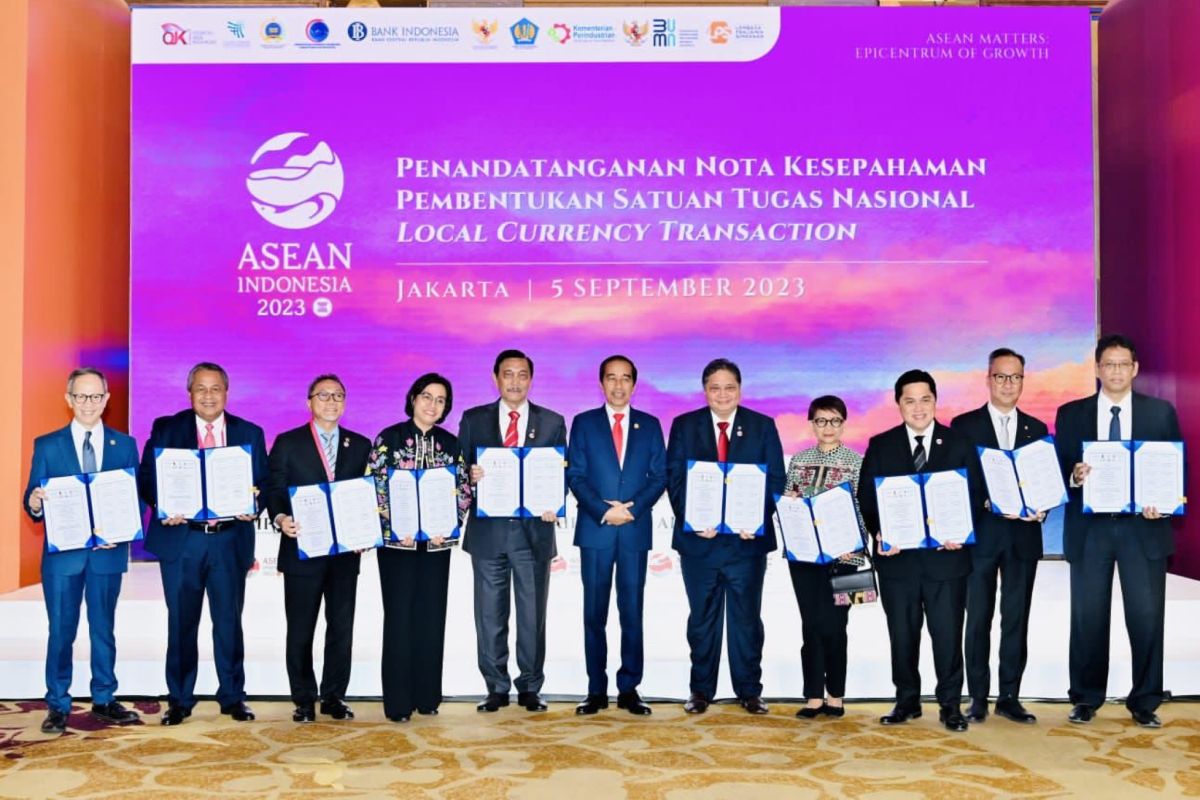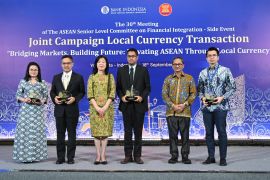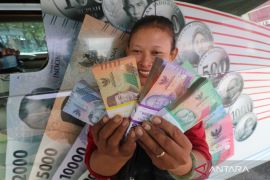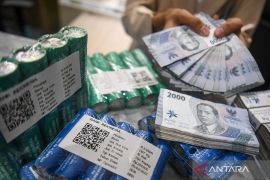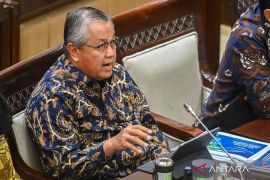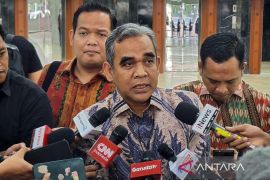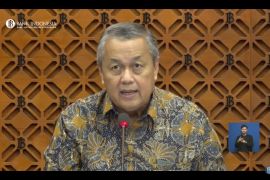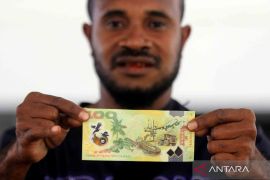As a result, the exchange rates of less influential currencies, including the Indonesian rupiah, are moving farther from stability. In this case, it will take more rupiahs to buy one dollar.
Based on that logic, the dependence on the use of the US dollar in international commercial activities will shoot up the costs required, as business actors need to initially convert a local currency into the dollar.
The unfavorable reality has prompted Indonesia to start taking steps to suppress reliance on the US dollar in bilateral transactions with partner countries. A system promoting the use of local currencies in transboundary trade is regarded as one of the most viable options to ditch such reliance, ultimately giving birth to hopes for the stabilization of the rupiah.
With its currency valued at a stable, favored rate, Indonesia will be able to strengthen its domestic financial market, which, in turn, will lead to sustainable economic growth.
Indonesia has been a party to local currency transactions (LCT) deals, which facilitate countries to simply use their national currencies. Among the expected perks of LCT are intensified export and import activities, a more favorable ecosystem for investment, and more convenient cross-border payments, all of which will bring mutual benefits to the economy of each participating country.
In the eyes of Indonesia, LCT is of such paramount importance that it comes as no surprise that the country proceeded with the establishment of the LCT National Task Force on the sidelines of the 43rd ASEAN Summit in Jakarta on September 5 last year.
The task force, mandated to intensify the use of the rupiah in trade with partner countries, is manned by officials from an array of institutions, namely Bank Indonesia, the Maritime Affairs and Investment Coordinating Ministry, Coordinating Ministry for Economic Affairs, Finance Ministry, Foreign Affairs Ministry, Industry Ministry, Trade Ministry, State-owned Enterprises, Financial Services Authority (OJK), and Indonesia Deposit Insurance Corporation (LPS).
One year later, on August 29, the aforementioned institutions recapped their commitment to promoting the use of the rupiah in cross-border trade by signing an agreement on cooperation and coordination in the implementation of the task force’s duties and functions.
The agreement aims to act as a tool that guides member institutions in synchronizing their LCT-related programs.
Deputy for Macroeconomic Coordination at the Coordinating Ministry for Economic Affairs Ferry Irawan noted that implementation of the LCT scheme had led to a spike both in the value of cross-border trade and the actors participating in such transactions.
Having found Malaysia, Thailand, Japan, and China as its existing LCT partners, Indonesia continues aiming to forge an LCT pact with more countries. The country has recently inked an LCT agreement with Singapore, South Korea, India, and the United Arab Emirates.
The total value of LCTs made between Indonesia and its partners stood at US$4.7 billion in the first half of this year, with the year-end figure projected to be 1.5 times higher than the US$6.29 billion clocked in 2023.
Members of the LCT National Task Force have continued to aim for a higher level of synergy, including drafting policy recommendations expected to drive business players to prioritize using the rupiah while making transactions and direct investments.
Additionally, the task force is striving to align policies and regulations in the banking and financial sectors for the sake of the cause.
Cross-border interconnectivity
In order to support cross-border interconnectivity and the implementation of LCT, Bank Indonesia, the country’s central bank, has created the 2030 Indonesia Payment System Blueprint (BSPI), which serves as a guideline to improve transboundary payment systems.
Bank Indonesia Governor Perry Warjiyo explained that the BSPI would be put into practice through the expansion of the coverage of the Quick Response Code Indonesian Standard (QRIS) to reach more countries and preparations for connecting national payment system infrastructures to partner countries.
Currently, QRIS, as Indonesia’s QR code-oriented payment system, has been made available in Malaysia, Thailand, and Singapore. Indonesia has made progress in talks on QRIS cooperation with several other countries, including Japan, the United Arab Emirates, India, and South Korea.
Furthermore, Indonesia has identified the potential to approach Laos, Vietnam, Cambodia, and Oman in order to enable the use of QRIS in their jurisdictions.
The Indonesian central bank is playing an active role in Project Nexus to connect BI-Fast, its interbank fund transfer facility, to Malaysia, Thailand, Singapore, the Philippines, and India under the coordination of the BIS Innovation Hub.
In Phase III of the project, Indonesia and the five other countries produced a road map that will guide them to get closer to streamlined multilateral payment systems.
The project has now entered its fourth phase, during which the countries are setting their course to the establishment of the Nexus Scheme Organization expected to act as the project’s organizer. Indonesia serves as a special observer in this phase.
Bank Indonesia has also prepared its real-time gross settlement (RTGS) transfer system in an effort to anticipate and meet the demands for payment interconnectivity in the future. It is worth noting that apart from Indonesia, other G20 countries have taken notice of the importance of developing and implementing RTGS systems to enhance cross-border payments.
LCT has grown to be seen by more countries as a promising scheme instrumental in interconnecting their trading and payment systems, which, in turn, will bring mutual positive impacts on their economies.
In order to succeed in boosting its economy through the LCT deals it has forged, Indonesia needs to ensure synergy among all relevant stakeholders at home, driving them to expedite the implementation of related programs and strategies, all while placing a reliable monitoring system in place.
Related news: ASEAN task force to devise transition for currency transactions
Related news: BI, 3 ASEAN central banks cooperate over local currency transactions
Translator: Martha H, Tegar Nurfitra
Editor: Azis Kurmala
Copyright © ANTARA 2024
